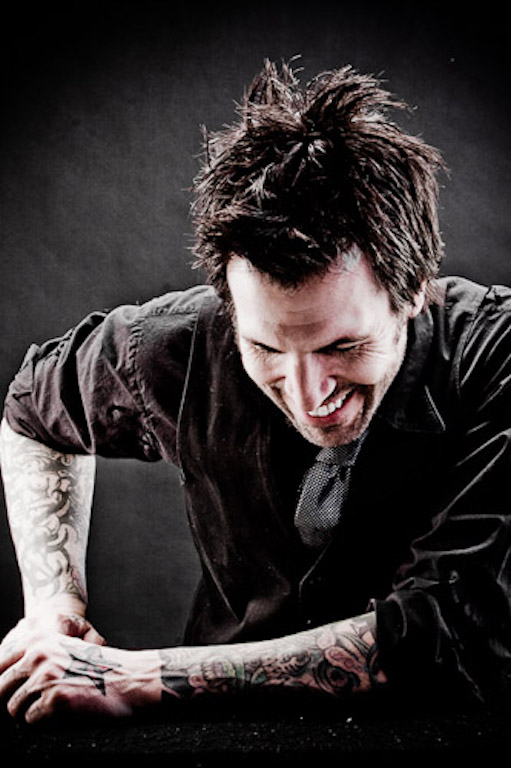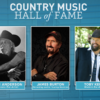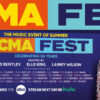
When Bill Shakespeare wrote “To be, or not to be, that is the question” in the early 17th century, I can say with confidence, he was not referring to musicians. I can also say with confidence that you’re probably experiencing some confusion or a bit of curiosity regarding two specific things in the opening sentence. One, did you know Shakespeare well enough to call him Bill and what does the line from Hamlet have to do with a current day musician? I wish I had some spectacular answer to both questions, but be honest, the reveal isn’t that spectacular at all. No, I didn’t know Bill, and with “to be, or not to be,” I’m referring to, a question musicians ask themselves on a daily basis and a question that I recently asked myself as well. To be, or not to be a hired gun, or a band member, that is the question.
Some would say, what’s the difference? If you’re playing your instrument, working and getting paid, why even pose such a question? Well it’s not as easy as you think. For thirty plus years, I have been a band member. When I say band member, I mean I was an equal member, with equal say and equal pay. If I go the hired gun route, then “I’m just the drummer.” Although “I’m just the drummer” might sound bad, on paper, it looks like the perfect career. I show up, I play my drums, I get paid. No drama, no hassle, no concern other than playing my drums. I also get to answer any question with “I’m just the drummer.” Hey Phil, how come you guys didn’t play that one song? I don’t know, I’m just the drummer. Hey Phil, can you put me on the guest list? I don’t know, I’m just the drummer. Hey Phil, why is your singer an asshole? I don’t know, I’m just the drummer. Was that enough examples, or should I drive this bit into the ground a little further?
With every big decision in life, one can only hope for guidance and advice. I’m very fortunate to have such a friend in drummer/producer Jonathan Mover. Although Jonathan has been a band member later in his career, his hired gun drumming resume reads like a musician’s wish list. Along with being one of the top players in the world today, he is the owner/editor of DRUMHEAD magazine, a music Producer and owns Swing House Studios in Los Angeles. Jonathan and I have been friends for almost thirty years and to say I’m grateful for our friendship and his wisdom would be a tremendous understatement. This wouldn’t be the first time I asked for advice from Jonathan and just like the times before, he was available to answer anything I asked.
My first concern was finding work as a drummer in the industry of today. My question to Jonathan was, ‘How has the industry changed and was there any room for a drummer like myself?’ Jonathan goes on to say, Well, I think there are many differences, but two very obvious ones are: 1) is what happened with the music industry going digital in the way of MP3s and Internet downloading, etc. and 2) anyone with a half-decent computer can now make their own recordings (good or bad), and they don’t even need to play an instrument. Both of those scenarios not only hurt the industry financially, but also make the playing field a much smaller one with regard to an artist needing outside musicians to create something. On the other hand, both of those scenarios have led to live music making a bit of a comeback, but with a downside, the budgets are nothing compared to what they used to be. So, if you’re going to go on the road, you’re probably going to be making far less money now than you were 15 – 20 years ago. Also, people are not into the long run any more. Bands and artists used to continuously tour and record, spanning decades; nowadays, an artist is lucky to get a ten-year run, and even with that, it’s usually a rollercoaster ride of major ups and downs, and not something one can count on for a so-called “career.” To sum it up, we’re f*ck*d, because we love what we do so much! What else is there?
I agree, what else is there? It’s a harsh reality and makes you wonder why we musicians continue to torture ourselves knowing exactly what we’re walking into. In Jonathan’s case, he studied with Gary Chaffee. Chaffee’s students consist of the best and most influential drummers in the world today. With Gary’s instruction and an incredible work ethic, it’s no surprise that Jonathan continues a very successful career and will always be one of the most sought after drummers of our time. My story is a bit different. I’m a self taught drummer. I’ve been in bands as a band member for thirty plus years, and although I have a pretty decent resume and body of work, my drumming education developed with years of recording and touring.
I ask Jonathan, how could I possibly be noticed in a much smaller, much more competitive market? Jonathan answers; my advice, which is for everyone, including myself, is to put yourself out there in as many situations as possible, and hopefully ones that cross pollinate. It’s a small industry and often one thing really does lead to another. We’ve all heard the stories about a drum tech that needed to fill in for an injured drummer and then gets the gig. Or you do a cheap demo session for some unknown artist, but the engineer loves working with you; the next thing you know, he’s in a major studio with a major artist and they’re having drummer problems… you never know. I play, produce, engineer, edit, write, arrange, publish a magazine, owned a major studio and now own a massive multiplex for music and film in Los Angeles, and I can absolutely attest to one thing leading to many others… Another thing is to try and think of situations that you can put yourself in and have some control over. Maybe it’s not waiting for someone to call you, but rather, you make the call and put something together.
After reading this, most people would run and look for a new career. I’m not most people. I’ve been fortunate so far as a hired gun. My first opportunity was with Jake E Lee’s Red Dragon Cartel. I was hired to play on the new record PATINA, coming out November 9th of this year, followed by a world tour. I’ve also been hired by other artists for studio work and continue playing live gigs as well. The best part of working with different artists is learning. I love walking into a new situation and being pushed as a drummer. Jake E Lee taught me great things in the studio and for that I’m very grateful. That experience has not only made me a better player, but sparked a new excitement for my true love of drumming. I look forward to what the future brings and despite the negative side of the music business; I’m a drummer for life. I live by the drums and will die by the drums.














